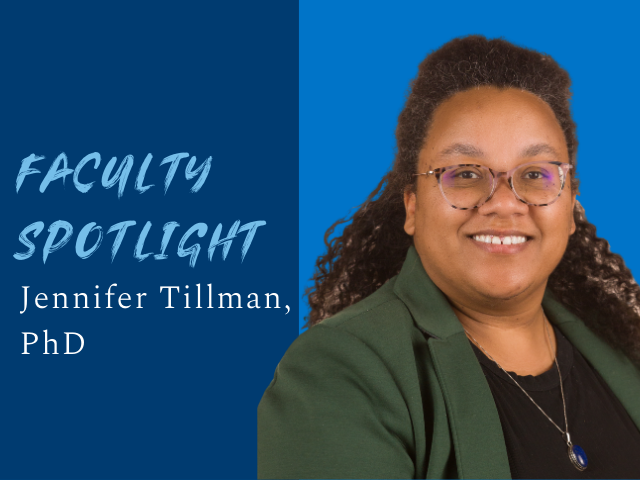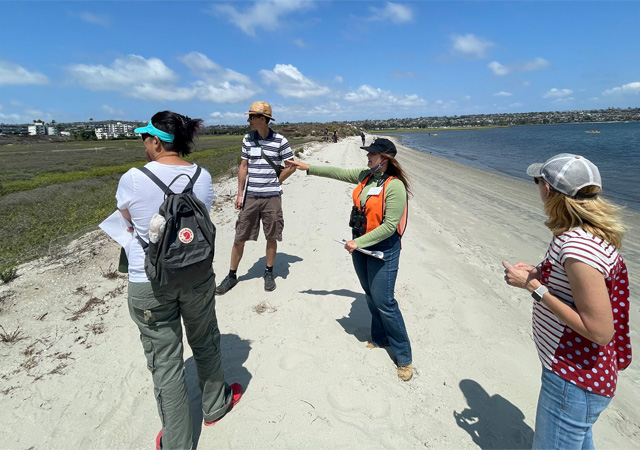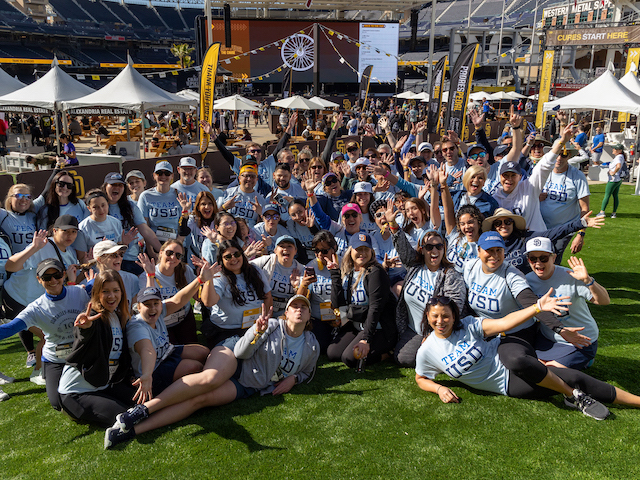Nonprofit Institute Annual Report on Local Nonprofits and Philanthropy is Released
The seventh annual State of Nonprofits and Philanthropy Summit in San Diego is a must-attend event for many reasons. On Oct. 18, shortly after 9:45 a.m. in Mother Rosalie Hill Hall's Warren Auditorium, Associate Director of The Nonprofit Institute, Laura Deitrick, PhD, had the proof.
The Nonprofit Institute (NPI), connected to the University of San Diego's School of Leadership and Education Sciences, released its 2019 State of Nonprofits and Philanthropy in San Diego Annual Report during a day-long summit program.
Inside the 19-page report, a six-person research team led by Deitrick, provides good news about the public’s trust of local nonprofits, key trends for this industry to take notice, a chance for nonprofit leaders to give valuable survey feedback and to examine current and potential challenges ahead.
"Colleagues think we're ambitious that we put out an annual report, but no other city produces a report every year. We feel that's a reflection of our interest in really reflecting back what you say to policy makers and leaders in the community," Deitrick said. "We take the trust you have in us and we don't want to break that chain. Every year it is important to do this work."
The report simplifies information provided from multiple sources of complex data, Deitrick said. Her research report team consists of: Tessa Tinkler, PhD, NPI senior research associate; Connelly Meschen, MArch, NPI assistant director of operations; Colton Strawser, MS, NPI doctoral research assistant; Jon Durnford, MBA, principal for DataLake LLC and NPI research associate; and Lisa Walker, MSust, NPI research assistant.
Said NPI Executive Director Emily Young, PhD, "NPI uses the annual findings to develop priorities for training, education and research. We use them to create tailored leadership programs aimed at developing ethical, compassionate and transformational leaders making a positive difference in their communities. We rely on these data to identify critical areas in need of future inquiry to create knowledge that drives innovation and solutions."
Favorable Findings
Trust is a big deal. In a comparison of overall confidence between nonprofits, corporations and government, nonprofits earned an 87 percent favorable mark, Corporations 66 percent and 53 percent for government, per findings from NPI's partnership with Luth Research.
Nonprofits rank higher for confidence to improve quality of life. Nonprofits were in the 80 percentiles for providing quality services, promoting positive social change and acting on the public's behalf. Corporations were 75 percent for quality services, but 50 percent in the other two. Government was consistently in the 50s. Nonprofits topped for confidence for being trustworthy and effective. Acting ethically netted nonprofits a 79 percent mark over 53 and 50 for corporations and government. Spending money wisely was a 67-61-36 mark in favor of nonprofits. Working efficiently was closest with 74 percent for nonprofits, and 71 and 45 for corporations and government, respectively.
Confidence in nonprofits is strong in terms of giving and volunteering behaviors. Those confident in nonprofits are twice as likely to donate than those who are not; three times more likely to volunteer than not; and those who volunteer are three times more likely to donate.
The survey has happened for five years, Deitrick said, thus, "we're able to see some trends and that makes this more interesting as the team dove deeper this year." More than 200 nonprofit leaders took the survey, she said.
Addressing Challenges
The importance of leadership is critical to ensure the region's quality of life, according to the report. "Our region faces many socio-economic and environmental challenges that threaten our quality of life. Nonprofit leaders recognized the interconnected nature of these challenges and stressed the need to do a better job of working together in confronting them."
Despite growing recognition for new ideas and action, nonprofit leaders gave all sectors low marks (scale of 1-10) demonstrating leadership necessary to enact solutions to critical challenges. In a report card based on anonymous responses, most received D's and F's. Nonprofit Organizations had a top score of 7.4 and a C grade.
Given higher levels of trust in nonprofits by San Diegans, it's natural to expect local nonprofits to take on leadership and tackle the region's toughest and most intractable issues. Among the findings: Income inequality and a high cost of living create many inter-related social challenges. Understanding and prioritizing needs is difficult. People are not working together effectively, therefore, progress on big issues is slow or altogether stalled. Visionary, courageous and inclusive leadership is needed to move forward.
Envisioning Trends
Trends to watch for coincide with key needs. For instance 83 percent of nonprofit survey respondents reported they've had an increased demand for their services in the last 12 months, but just nine percent said they’re able to meet all of the increased demand. Financial resources are always going to be atop any list of needs, the survey sought answers of what other resources were needed to be effective. More affordable facilities, updated technology, capacity building, support for collaboration, marketing and leadership development were at the top.
Beyond the Report
Before the report was revealed, Sofia Salgado, executive director for MANA de San Diego, was named the recipient of the Pat Libby Award for Excellence in Nonprofit Leadership. After the report’s release, NPI hosted nine professional development workshops. Also, short bridge talks were given by SOLES professionals: Hans Peter Schmitz, PhD (The Digital Nonprofit: Advocacy in the Age of Social Media); Adriana Loson Ceballos, MA (current PhD Student) (Giving Circle Movement: Expanding and Changing Philanthropy); Sue Carter Kahl, PhD (Volunteers: Your Overlooked Source of Capacity and Trust); and Marcus Lam, PhD (Using Geographical Information Systems to Estimate Nonprofit Service Area: Application of Community Health Center Data).
— Ryan T. Blystone
Photos in slideshow courtesy of The Nonprofit Institute at USD Facebook page and Ryan T. Blystone
Contact:
USD News Center
news@sandiego.edu
(619) 260-4681




